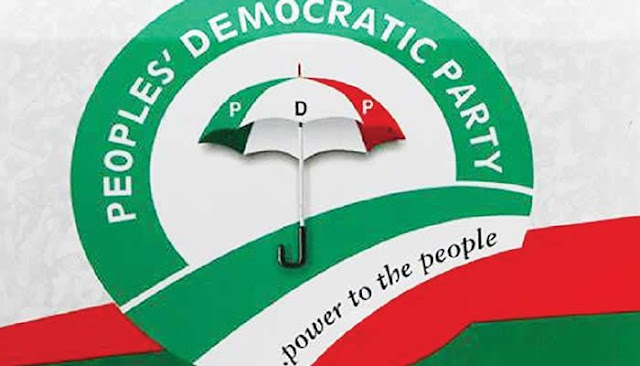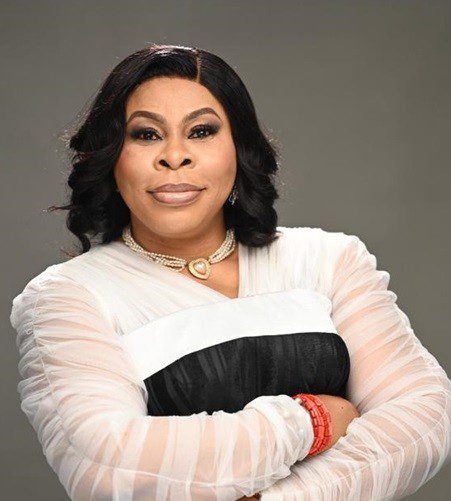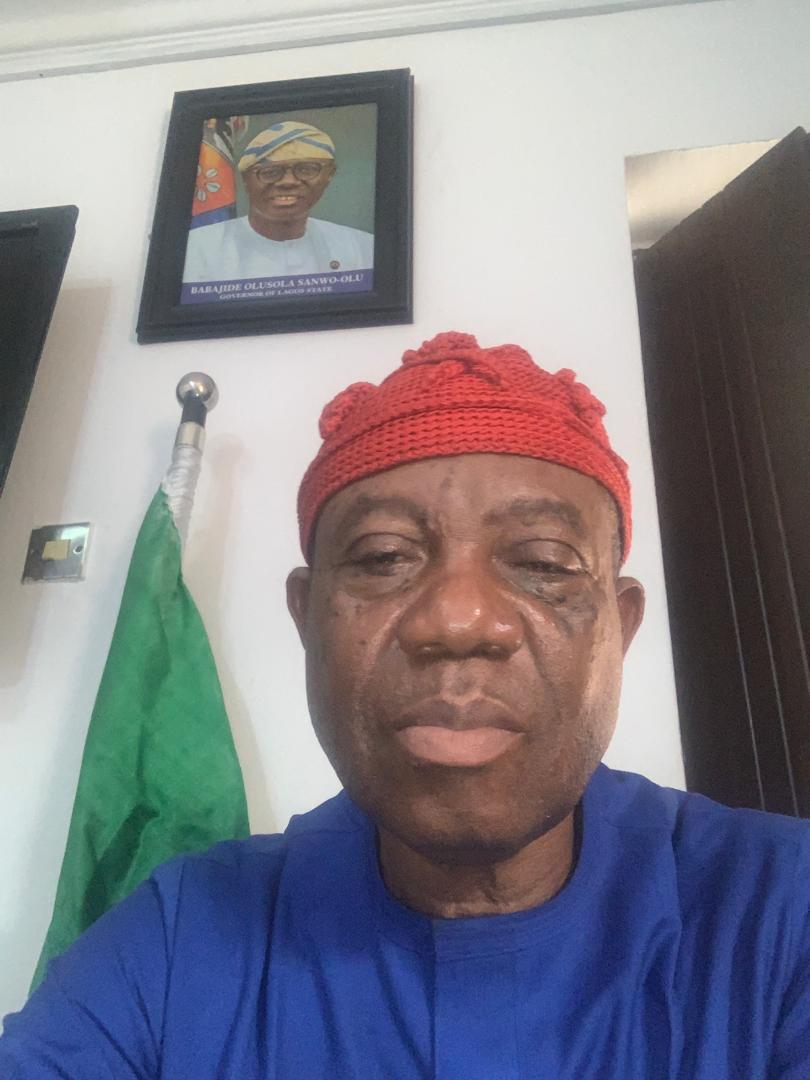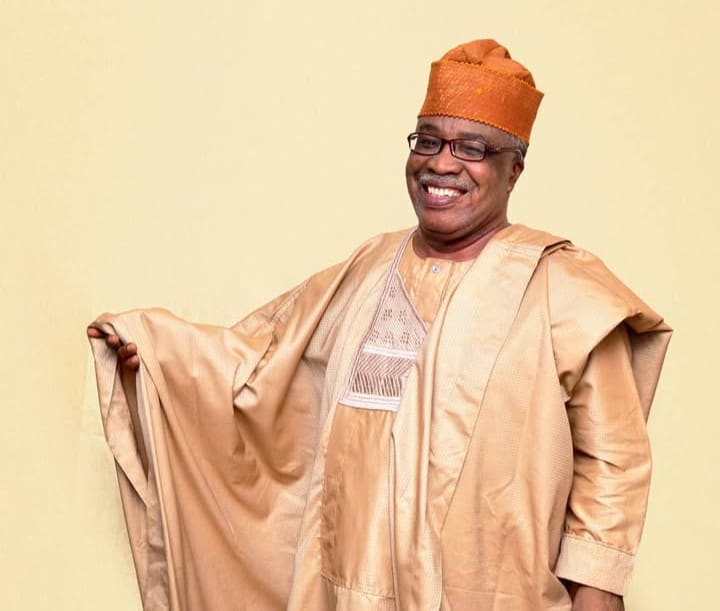In a significant departure from Nigeria’s long-standing political tradition of rotating the presidency between its northern and southern regions, the People’s Democratic Party (PDP), one of Nigeria’s leading opposition parties, has announced its decision to zone its presidential ticket for the 2027 general elections to the southern part of the country. This move, which has been described as both strategic and divisive, has ignited a firestorm of reactions, particularly from political stakeholders in Northern Nigeria, who view it as a breach of the unwritten power rotation agreement that has shaped Nigeria’s democratic landscape for decades. The decision, made during a recent meeting of the PDP’s National Executive Committee (NEC), has set the stage for intense political debates, realignments, and negotiations as the nation prepares for the next electoral cycle.
Background: The Power Rotation Principle in Nigerian Politics
Nigeria, Africa’s most populous nation, is a country of immense diversity, with over 250 ethnic groups and a roughly equal divide between its northern and southern regions. This diversity has long influenced the country’s political dynamics, with power rotation between the North and South serving as an informal mechanism to promote national unity and prevent the marginalization of any region. Since the return to democratic rule in 1999, Nigeria’s major political parties, including the PDP and the ruling All Progressives Congress (APC), have largely adhered to this principle, ensuring that the presidency alternates between the two regions after every eight-year cycle.
The PDP, which governed Nigeria from 1999 to 2015, has historically played a pivotal role in institutionalizing this zoning arrangement. For instance, after President Olusegun Obasanjo, a southerner from Ogun State, completed his two terms from 1999 to 2007, the presidency was zoned to the North, leading to the emergence of Umaru Musa Yar’Adua, a northerner from Katsina State. Following Yar’Adua’s untimely death in 2010, his vice president, Goodluck Jonathan, a southerner from Bayelsa State, assumed the presidency, sparking tensions with northern political elites who felt their region was shortchanged. The PDP’s decision to field Jonathan in the 2011 elections further deepened these tensions, as it disrupted the expected rotation.
In 2015, the APC capitalized on this discontent, rallying northern support to elect Muhammadu Buhari, a northerner from Katsina State, who served two terms from 2015 to 2023. Buhari’s presidency was followed by the election of Bola Ahmed Tinubu, a southerner from Lagos State, under the APC banner in 2023. With Tinubu, a southerner, currently in office, many northern political leaders had anticipated that the PDP would zone its 2027 presidential ticket to the North to maintain the balance of power. However, the PDP’s recent decision to zone the ticket to the South has upended these expectations, triggering widespread criticism and debate.
The PDP’s Decision: A Break from Tradition
The PDP’s announcement came during a high-stakes meeting of its National Executive Committee in Abuja, where party leaders deliberated on strategies to reposition the party ahead of the 2027 elections. According to sources within the party, the decision to zone the presidential ticket to the South was driven by a combination of strategic and pragmatic considerations. The PDP, which has been out of power at the federal level since 2015, is keen to present a strong and united front to challenge the APC’s dominance. Party leaders argued that zoning the ticket to the South would broaden the PDP’s appeal in the southern states, where it has historically enjoyed significant support, while also addressing the aspirations of southern politicians within the party.
The decision was not without precedent within the PDP’s internal dynamics. In 2019, the party zoned its presidential ticket to the North, selecting former Vice President Atiku Abubakar as its candidate to face Buhari. Atiku, a northerner from Adamawa State, lost the election, and his subsequent bid for the presidency in 2023 was also unsuccessful. Some PDP leaders believe that fielding another northern candidate in 2027 could alienate southern voters, particularly in light of Tinubu’s southern presidency. They argue that a southern candidate would energize the party’s base in the South-South, South-East, and South-West geopolitical zones, which collectively account for a significant portion of Nigeria’s voting population.
Moreover, the PDP’s decision reflects the growing influence of southern governors and political heavyweights within the party. Figures such as Rivers State Governor Siminalayi Fubara, former Delta State Governor Ifeanyi Okowa, and Enugu State Governor Peter Mbah have been vocal advocates for a southern presidency, citing the need for equity and fairness within the party. These leaders contend that the South has been underrepresented in the PDP’s recent presidential candidacies and that zoning the ticket to the South would strengthen the party’s national appeal.
Northern Reaction: Outrage and Calls for Reconsideration
The PDP’s decision has been met with fierce opposition from northern political leaders, who see it as a betrayal of the power rotation principle that has long served as a stabilizing factor in Nigerian politics. Northern stakeholders argue that after Tinubu’s tenure, which is expected to last until at least 2027, the presidency should naturally return to the North to maintain the delicate balance of power. They point out that the North has not held the presidency since Buhari’s exit in 2023, and zoning the PDP ticket to the South could effectively lock the region out of the presidency for an extended period, especially if the APC also fields a southern candidate in 2027.
Prominent northern leaders within the PDP, including members of the party’s Board of Trustees and former governors, have publicly expressed their displeasure. A former governor from a northern state, speaking anonymously to avoid intra-party backlash, described the decision as “a slap in the face to the North.” He warned that it could lead to a mass exodus of northern members to the APC or other political parties that are perceived to be more sympathetic to the region’s interests. “The PDP is shooting itself in the foot,” he said. “The North has been a loyal base for the party, and this decision risks alienating millions of voters.”
The Northern Elders Forum (NEF), a influential socio-political group, issued a strongly worded statement condemning the PDP’s move. The NEF argued that the decision undermines the principles of fairness and inclusivity that the party has long championed. “The PDP cannot claim to be a national party while sidelining an entire region,” the statement read. “We call on the party leadership to reconsider this decision in the interest of national unity.” The NEF also hinted at the possibility of mobilizing northern voters to support alternative candidates or parties in 2027 if the PDP does not reverse its stance.
Implications for the PDP and Nigerian Politics
The PDP’s decision to zone its 2027 presidential ticket to the South has far-reaching implications for both the party and Nigeria’s broader political landscape. For the PDP, the move represents a high-stakes gamble that could either rejuvenate the party or deepen its internal divisions. On one hand, a southern candidate could galvanize support in key battleground states, particularly in the South-South and South-East, where the PDP has historically performed well. A strong southern candidate could also attract disaffected APC voters who may be dissatisfied with Tinubu’s performance by 2027.
On the other hand, the decision risks alienating northern voters, who constitute a significant portion of Nigeria’s electorate. The North-West and North-East geopolitical zones alone account for nearly half of the country’s registered voters, making the region a critical factor in any presidential election. If northern PDP members feel marginalized, they could defect to the APC or support a third-party candidate, further weakening the PDP’s chances of reclaiming the presidency.
The decision also raises questions about the future of power rotation in Nigerian politics. While the principle has never been formally enshrined in the constitution, it has been a cornerstone of Nigeria’s democratic practice since 1999. The PDP’s break from this tradition could embolden other parties, including the APC, to abandon zoning altogether, potentially leading to increased regional tensions and political instability. Some analysts warn that a free-for-all approach to presidential candidacies could exacerbate ethnic and religious divisions, particularly in a country as diverse as Nigeria.
Potential Southern Candidates and Internal Party Dynamics
With the PDP’s presidential ticket now zoned to the South, attention has turned to potential candidates who could emerge as the party’s flagbearer in 2027. Several prominent southern politicians have been mentioned as possible contenders, including:
Nyesom Wike: The former governor of Rivers State and current Minister of the Federal Capital Territory is a polarizing yet influential figure within the PDP. Wike’s political clout in the South-South and his ability to mobilize resources make him a formidable candidate, though his strained relationship with some party leaders could complicate his candidacy.
Peter Obi: The former Anambra State governor and 2023 Labour Party presidential candidate has been floated as a potential PDP candidate, particularly if he rejoins the party. Obi’s appeal among younger voters and his strong performance in the South-East during the 2023 elections make him a compelling choice, though his return to the PDP remains speculative.
Ifeanyi Okowa: The former Delta State governor is another strong contender from the South-South. Okowa’s experience as Atiku’s running mate in 2023 and his deep ties to the PDP’s grassroots structure position him as a viable candidate.
Seyi Makinde: The Oyo State governor is one of the PDP’s most prominent figures in the South-West. Makinde’s progressive credentials and his ability to win elections in a region dominated by the APC make him an attractive option for the party.
The selection of a southern candidate is likely to spark intense competition within the PDP, as aspirants jostle for the support of party leaders and delegates. The party’s primary process, which is often fraught with intrigue and power struggles, will be closely watched as a barometer of the PDP’s unity and strength heading into 2027.
The APC’s Response and the Broader Electoral Landscape
The PDP’s decision has also prompted reactions from the ruling APC, which has yet to announce its own zoning plans for 2027. Some APC leaders have suggested that the party may also consider a southern candidate to counter the PDP’s strategy, particularly if Tinubu seeks a second term. However, such a move would likely face resistance from northern APC members, who may argue that the party should return the presidency to the North to maintain the rotation principle.
The emergence of other political parties, such as the Labour Party and the New Nigeria People’s Party (NNPP), adds another layer of complexity to the 2027 electoral landscape. These parties, which gained significant traction in 2023, could capitalize on the PDP’s internal divisions and the broader discontent with the zoning debate to attract voters. The Labour Party, in particular, has emerged as a viable alternative for younger and urban voters, while the NNPP has made inroads in the North-West, particularly in Kano State.
Conclusion: A Defining Moment for the PDP and Nigeria
The PDP’s decision to zone its 2027 presidential ticket to the South marks a pivotal moment in Nigeria’s political history. By breaking with the tradition of power rotation, the party is taking a bold and risky step that could reshape its fortunes and the country’s democratic landscape. While the move has the potential to strengthen the PDP’s position in the South, it risks alienating its northern base and undermining the delicate balance of regional power that has long defined Nigerian politics.
As the 2027 elections approach, the PDP will need to navigate these challenges carefully, balancing the aspirations of its southern members with the need to maintain a broad national appeal. The reactions from northern stakeholders, the selection of a southern candidate, and the responses from rival parties will all play a critical role in determining the PDP’s fate. For now, the decision has set the stage for a contentious and unpredictable electoral cycle, one that could redefine the rules of political engagement in Nigeria for years to come.







